Regional transportation leaders and agency executives from across Washington, DC, Maryland and Virginia convened at Martin Luther King Jr. Memorial Library on November 13 for the seventh annual Capital Region Transportation Forum. Co-hosted by the Greater Washington Partnership (the Partnership) and Greater Washington Board of Trade (the Board of Trade). Discussions focused on progress and challenges toward achieving sustainable funding for the Washington Metropolitan Area Transit Authority (WMATA), and transportation opportunities and challenges across the region. The Partnership and the Board of Trade are committed to advancing strategic transportation investments to keep our economy moving. An accessible, inclusive and efficient transportation system is essential to the prosperity of businesses and residents alike.
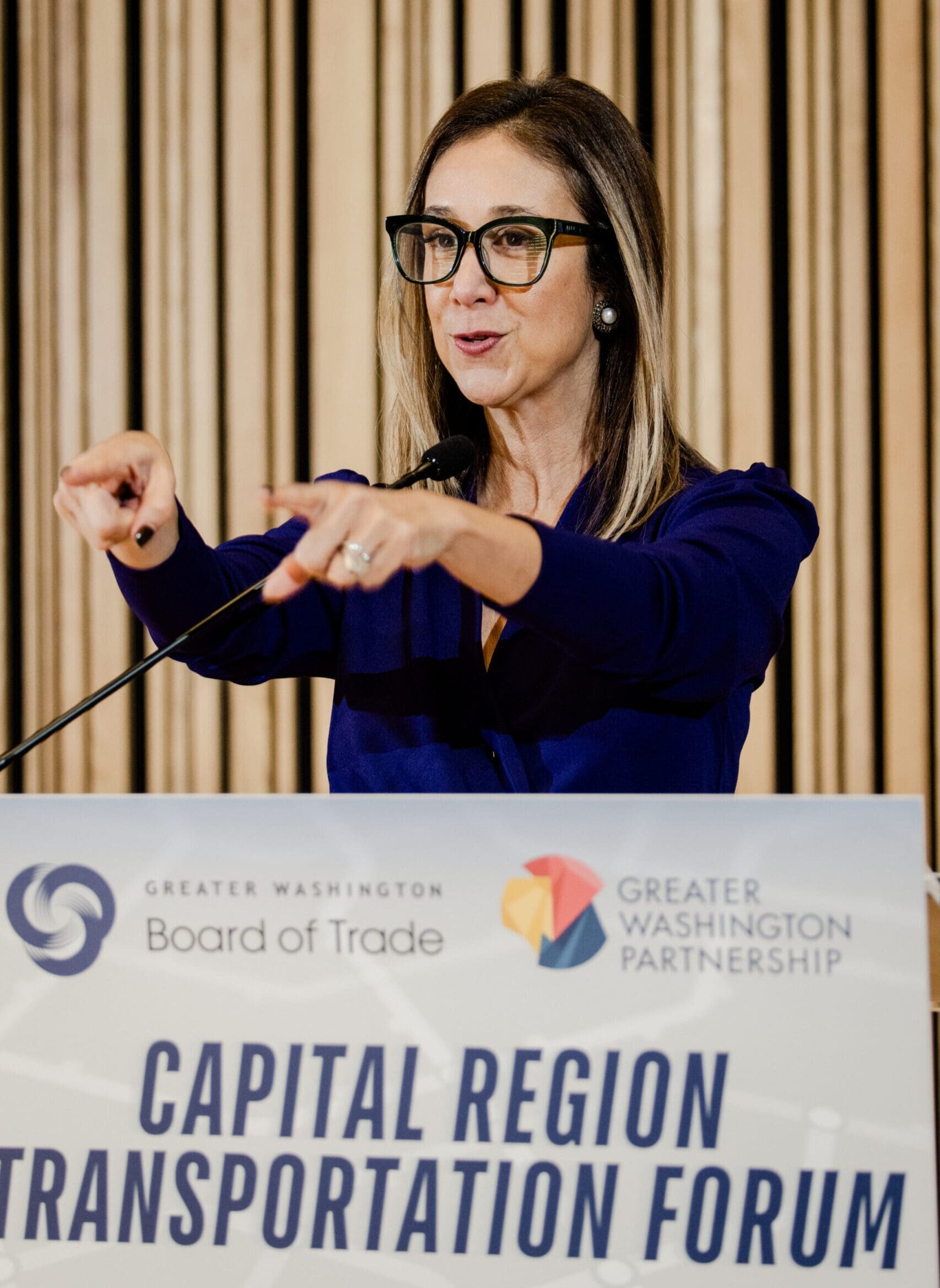 |
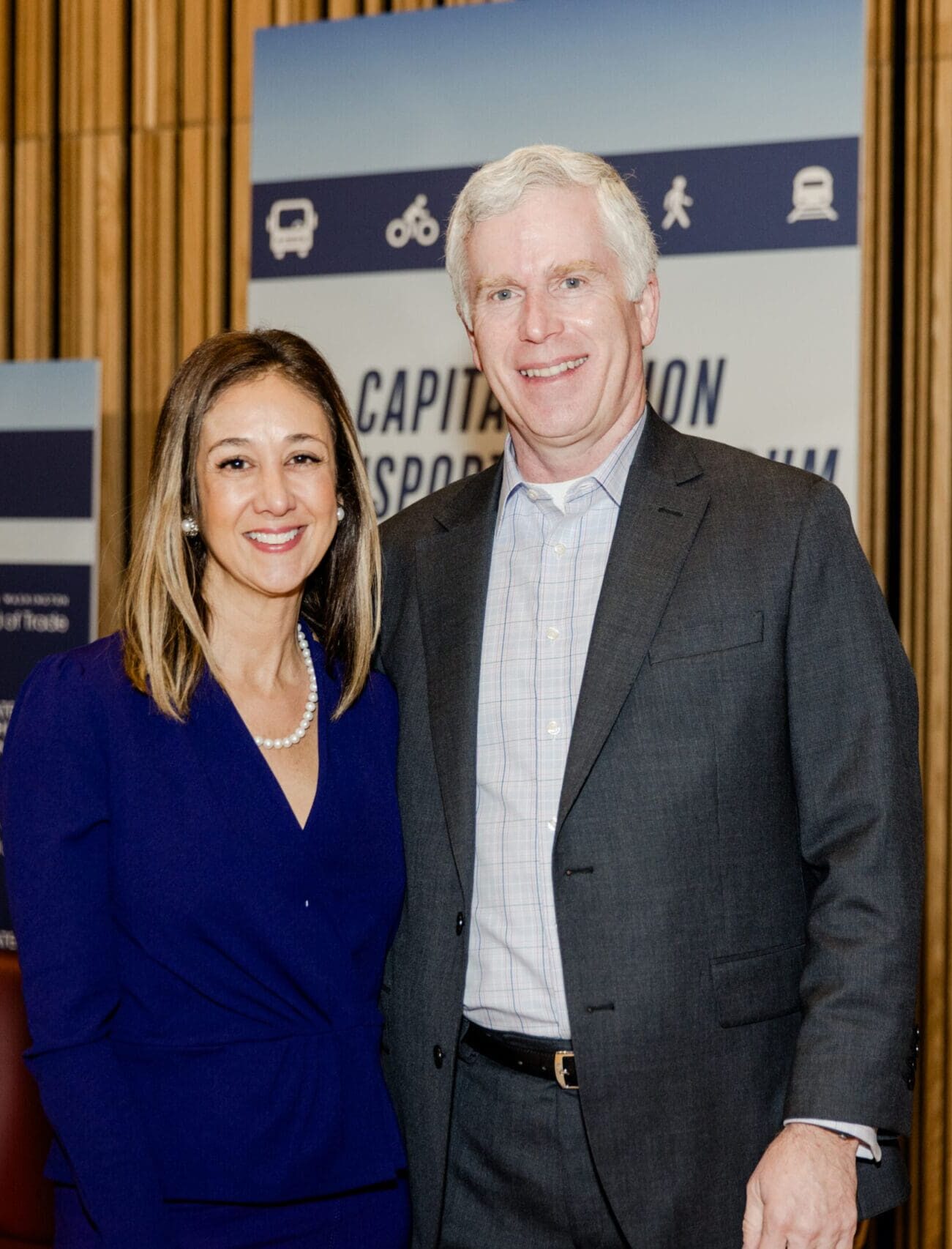 |
Partnership CEO Kathy Hollinger opened the forum by outlining priorities from the recently released Blueprint for Regional Mobility 5-Year Refresh. Informed by over 100 stakeholders, this roadmap emphasizes securing sustainable Metro funding, restoring DC as a world-class rail hub and embracing transit-oriented development (TOD).
Randy Clarke, WMATA’s General Manager and CEO, spotlighted Metro’s vital role in the region’s economy, contributing $9.4 billion in economic activity and achieving 43 consecutive months of ridership growth as of October 2024. Clarke emphasized, “Where Metro goes, the region grows,” underscoring the economic implications of a modernized and reliable Metro system. However, he warned that without long-term funding indexed to inflation and upgrades like an updated signaling system, Metro’s ability to continue to serve the region remains at risk.
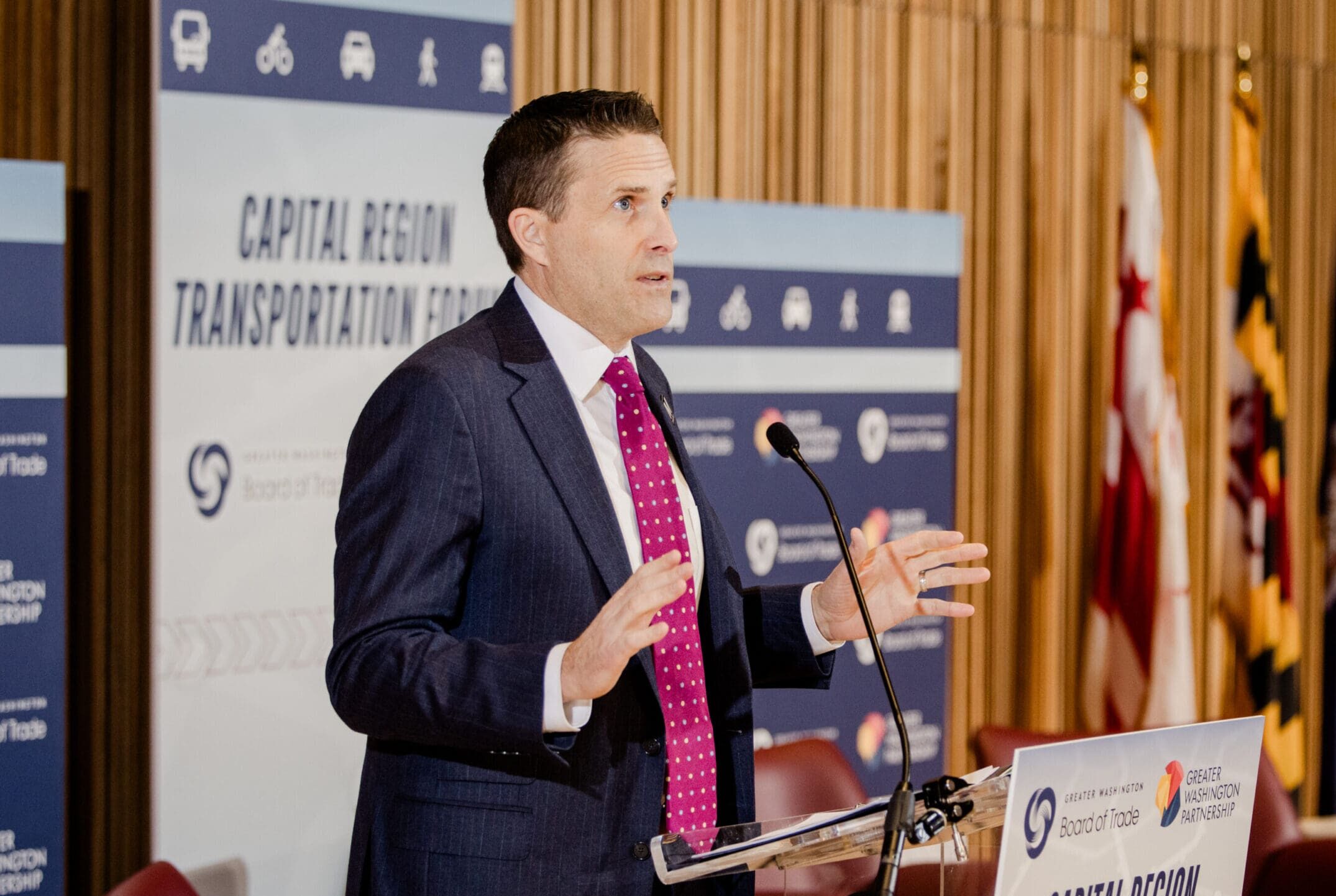 |
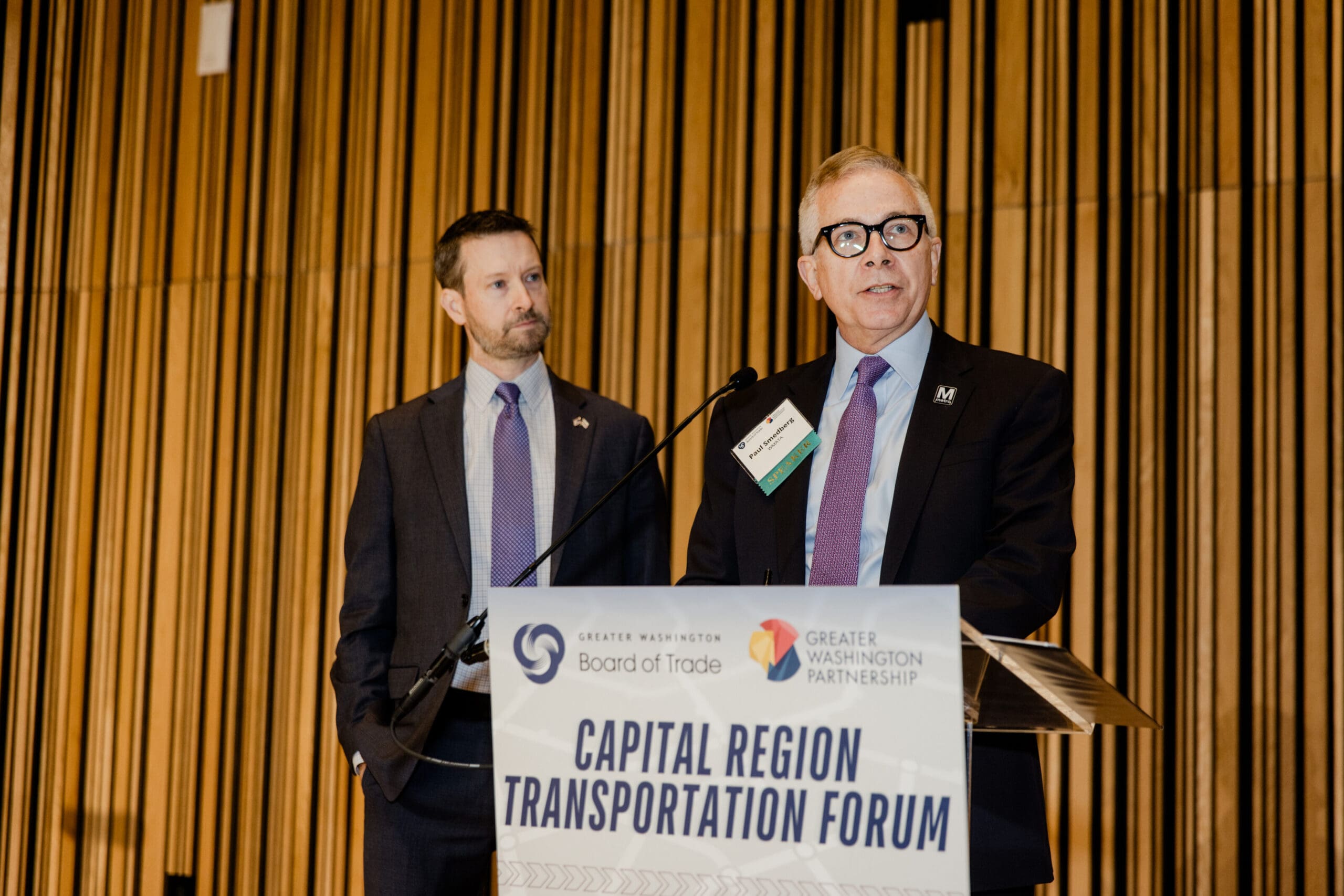 |
Charles Allen, COG Board Chair and District of Columbia Councilmember, and Paul Smedberg, WMATA Board Vice–Chair and Principal Director, kicked off the DMVMoves panel by sharing updates on the initiative’s progress. They highlighted key improvements in public safety and customer satisfaction, while emphasizing the imperative for sustainable funding for WMATA and urging business leaders to get involved. The subsequent panel, moderated by Nick Donohue, Principal at Capitol Transportation Consulting, and featured Board of Trade President and CEO Jack McDougle and Fairfax County Executive Bryan Hill, two leaders on the DMVMoves initiative. Their discussion centered on the ongoing efforts to modernize the region’s transit system and the importance of collaborative action to address the region’s transportation challenges. Panelists stressed that these issues extend beyond Washington, DC, impacting the entire region and similar coalitions across the country. They called for business leaders to play a more active role in supporting a transit system that serves all residents and fosters long-term economic growth.
 |
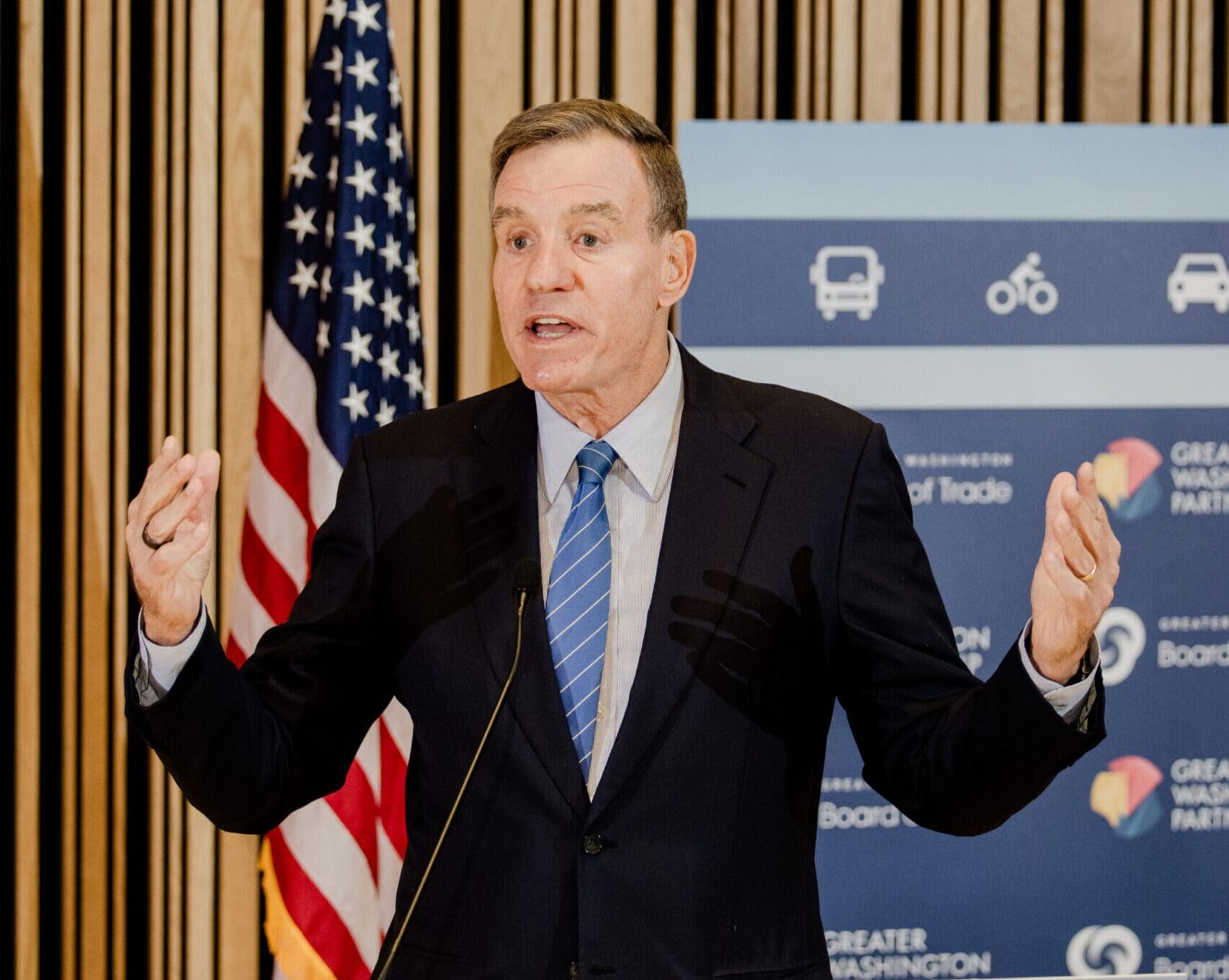 |
We were joined by United States Senator Mark Warner for a keynote presentation. Sen. Warner highlighted the regional benefits of the Bipartisan Infrastructure Law and highlighted three key priorities to ensure the vibrancy and vitality of our regional economy and future of transit: 1. Come together as a region to emphasize the expertise and efficiency benefits of concentrating federal workers in the region; 2. Accelerate return-to-office in both the public and private sectors; and 3. Continue to grow and expand regional cooperation initiatives.
The final panel, moderated by NBC News Anchor Adam Tuss, gathered regional transportation agency executives to discuss recent progress and collaborations on regional transportation initiatives. The panelists, Virginia Secretary of Transportation W. Sheppard Miller III, Maryland Transportation Secretary Paul Wiedefeld and Director of the District Department of Transportation Sharon Kirshbaum, shared insights on their administrations’ respective visions and regional priorities. Major long–term transportation projects discussed included the Purple Line in Baltimore, the Expansion of Union Station in Washington DC and the construction of The American Legion Memorial, each of which will support the region’s transportation system.
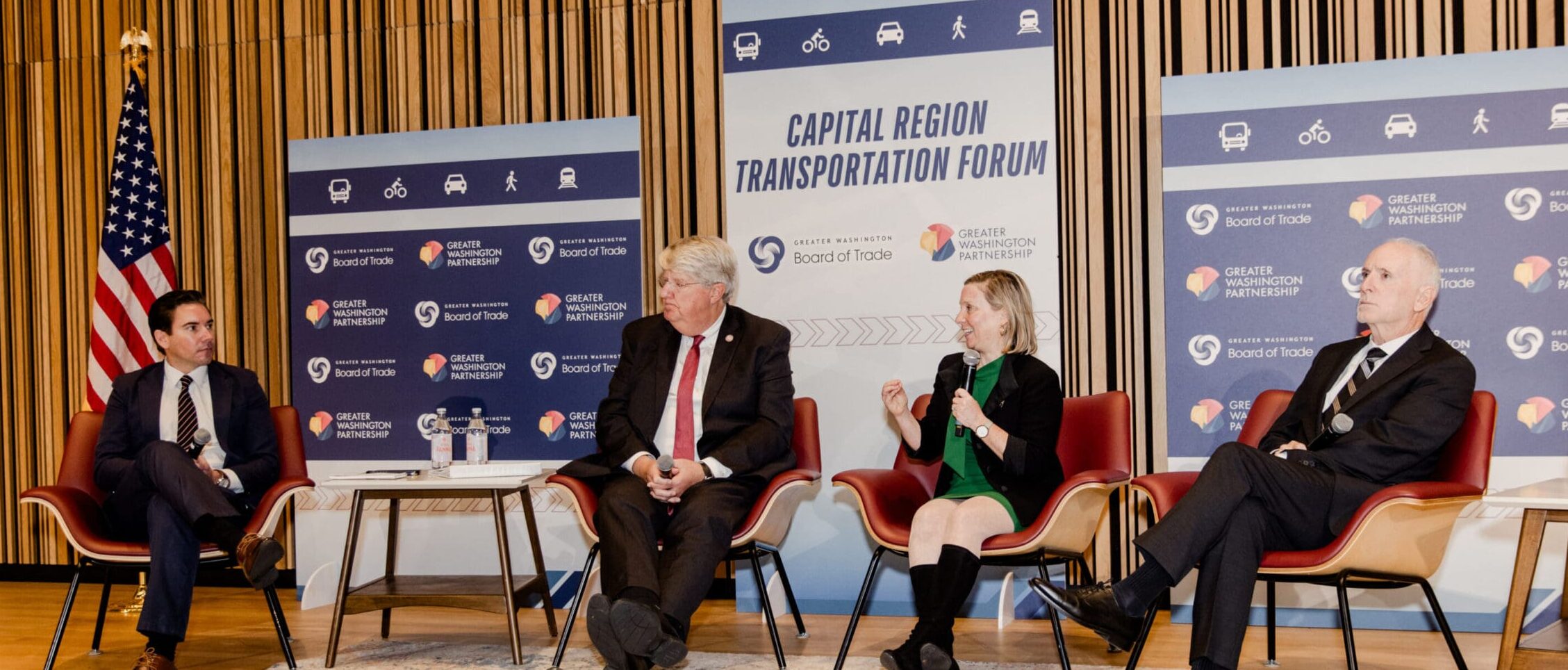
The region’s future depends on bold decisions and sustained collaboration to address evolving challenges. By advancing modernized, innovative transportation solutions, we can ensure a thriving and connected economy for years to come.
Special thanks to our moderator, NBC News 4’s Adam Tuss, and our sponsors—Transurban, HNTB, EXP, Northeast Maglev and WSP—for making this important event possible.
Watch the Forum
Join the Conversation
Together, we can shape the future of transportation in our region.
Share your thoughts on our region’s transportation future using the hashtag #CRTF2024 and tag us on LinkedIn, X, Facebook and Instagram.
